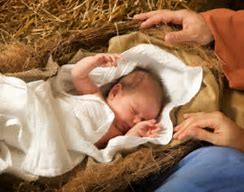A Sweet Thing
A dear friend showed up for dinner the other evening with a twinkle in her eye and a surprise in her bag. “Look at this,” she said. She pulled out a printed copy of one of my sermons. It was dated 1995. We did not know each other then. In fact, we did not meet for another fifteen years. Though she belonged to another church, she and husband would occasionally attend Plymouth. I believe she also came sometimes to the mid-week jazz service we had back then, as she worked downtown.
She had found the sermon while going through some old files. Not only had she kept it all these years, but it was well-marked with her notes and yellow highlighting. The sermon was titled, “Helping Children Know Right From Wrong.” It was part of sermon series I did that year on “Living Moral Lives in Morally Uncertain Times.”
 It was a pretty decent sermon. Here’s a bit she had marked with yellow hi-lighter. “Children who are poor and hungry are at risk. But increasingly all children are at risk in a society where basic safety, security and the presence of reliable and trustworthy adults and institutions cannot be assumed. The truth is that it takes a tremendous amount of effort and commitment on the part of any society to raise a new generation. It’s not an after-thought. It’s the main thought. Nor is it something accomplished with a quick-fix or new program. It is long term work.”
It was a pretty decent sermon. Here’s a bit she had marked with yellow hi-lighter. “Children who are poor and hungry are at risk. But increasingly all children are at risk in a society where basic safety, security and the presence of reliable and trustworthy adults and institutions cannot be assumed. The truth is that it takes a tremendous amount of effort and commitment on the part of any society to raise a new generation. It’s not an after-thought. It’s the main thought. Nor is it something accomplished with a quick-fix or new program. It is long term work.”
That said, the place of morality in the Christian faith is an interesting, even surprising, one. For many people morality, right and wrong, and the church as a teacher of these things is what we think the church to be all about. Building on that we often think that Christianity is, like other religions, about living in the right way and gaining some reward, whether “salvation” or life beyond death, as a consequence of a good life. But it’s not.
I’m fond of quoting the aphorism, which I’ve attributed to Calvin (though I’m not sure that’s right), “Salvation is all about grace; ethics is all about gratitude.” In others words, we experience something called “salvation” whether in this life or the next, not by earning it (works) but by trusting in another (grace), specifically Jesus Christ. He does for us what we cannot do for ourselves. In him God has liberated us from the twin powers of Sin and Death that rule over a fallen world and over us all.
We don’t save ourselves by our good works or moral lives. “Salvation is all about grace.” It is a gift. A gift of Another, of a love that loved us first. In this sense, Christianity is not what we normally think of as a religion at all, that is, a system of human actions/ behaviors which, if adhered to lead to an eternal reward. Believing that, that Christianity is stuff we do in order to be acceptable or accepted puts us on the rat wheel of constant effort and never-ending achievement. Moreover, it results in a self-deceiving view of others as being in one of two groups, the “good people” or the “bad people.”
To such relentless effort to establish our virtue and worth, God says, “Stop it. Stop it, right now. Stop all this effort to get on my good side or to show others that you are on my side. It is all in vain and vanity. The good news is that in Jesus Christ I have already taken your side and will never leave it. Trust this and live.”
That’s the “Salvation is all about grace” part. But it doesn’t end there, and that’s where we return to morality and the second half of the aphorism, “Ethics is all about gratitude.” In response to grace, we are called to be, and in some sense, empowered to be, gracious. Gracious to others and in the way we live. The moral life, then, is not a life of moral perfection which finally results in a grudging God saying, “O.K. you’re in.” It is the life of a forgiven sinner, which starts with, “You’re in. Period. Really. Trust this and love and live boldly.”
It took me a long time to sort this out, both intellectually and existentially.
Anyhow, it was a nice thing to know that a sermon of mine had meant something to someone long ago. It was grace. At Christmas, grace comes in the form of a baby, God’s way of saying, let’s start fresh, as fresh and new as baby flesh. That’s also grace.
![Anthony B. Robinson [logo]](https://www.anthonybrobinson.com/wp-content/themes/anthonybrobinson/images/logo.png)
![Anthony B. Robinson [logo]](https://www.anthonybrobinson.com/wp-content/themes/anthonybrobinson/images/logo-print.png)